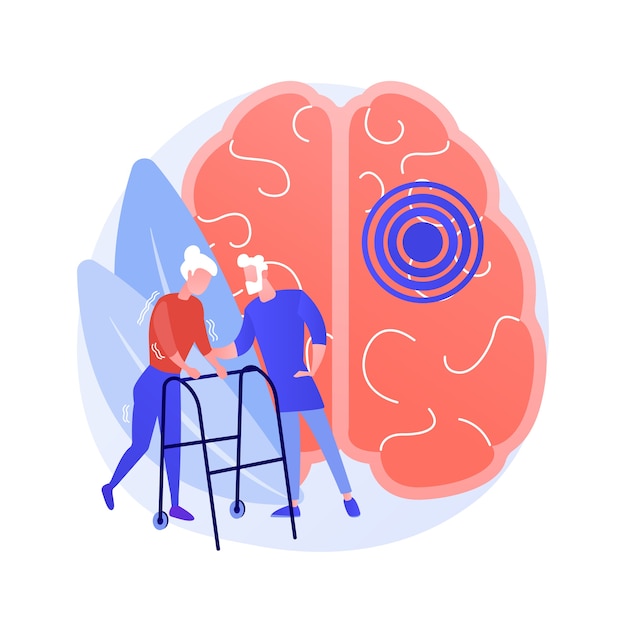
It’s normal to occasionally forget things—it happens to all of us and isn’t usually a cause for concern. However, if someone is constantly struggling with forgetfulness to the point where it significantly affects their daily life, it may be a sign of more serious memory loss. The good news is that, with the right support and guidance, this issue can be managed effectively.
Forgetfulness is a common human experience and can be influenced by factors like stress, aging, or everyday distractions. But when memory lapses start interfering with everyday life and become persistent, it’s important to seek professional advice. Left unaddressed, long-term memory problems can worsen over time, potentially leading to serious mental health conditions that are challenging to manage without help.
For many, memory loss is closely linked to diseases like dementia, which can impair brain function in significant ways. Those impacted by conditions like dementia may experience struggles with memory, decision-making, social interactions, and even simple tasks. They might forget the names of loved ones, lose track of familiar places, or withdraw from important activities. This doesn’t just affect the person experiencing the memory loss; it also takes an emotional toll on their friends and family. Providing tender care, patience, and medical treatment can make a significant difference.
### Practical Tips for Coping with Memory Loss
#### Create an Adaptable Environment
An organized, easy-to-navigate living space can help someone with memory challenges rely less on their brain for day-to-day tasks. Keeping things in consistent places—like keys, glasses, or other commonly used items—reduces the likelihood of misplacing them. Visual labels or guides, such as signs pointing to rooms or reminders on sticky notes, can be helpful for navigating the home or remembering scheduled tasks.
Duplicate frequently lost items, like spare keys or important documents, to prevent unnecessary stress. Create a peaceful environment by minimizing loud noises or other distractions, which can make memory issues worse.
#### Simplify Conversations
Talking can be frustrating for someone with memory loss, especially if they struggle to recall familiar words, phrases, or names. You can help make conversations more comfortable by offering gentle hints when they seem stuck or lost in thought. Avoid putting pressure on them to remember specifics or using language that might make them feel insecure. Pick a calm time of day, such as the morning, for important discussions, and keep conversations short, simple, and free of distractions.
You might also consider keeping a photo album with labeled names and relationships to help them recognize loved ones or recall past memories.
#### Explore Assistive Technology
Technology can make life easier for people with memory challenges. For instance, sensor devices might remind someone to take necessary belongings like a wallet or phone as they walk out the door. Locator gadgets can help track commonly misplaced items. Alarms and reminders can keep schedules on track, whether it’s time for a meal, taking medication, or attending an appointment.
For larger tasks, such as cooking a meal, you can simplify the process by organizing all the ingredients and tools in one place with clear instructions.
#### Help Recall Recent Events
One challenge many people face with memory loss is retaining recent events or conversations. This is typically due to damage in the part of the brain responsible for processing new information. Caregivers can support them by providing gentle reminders or cues. For example, maintaining a diary that logs daily activities or keeping a visible calendar with important dates marked can serve as helpful references.
Avoid pressuring them to recall memories immediately, as this can make them feel frustrated or embarrassed. Instead, ask specific, straightforward questions that are easier to answer.
#### Stay Active and Engaged
Remaining inactive or isolated for long periods can worsen memory issues. Encouraging brain-stimulating activities, like puzzles, card games, or learning a new skill, can improve mental function and keep the brain sharp. Social interaction, whether through casual chats or larger gatherings, can also provide emotional support and boost overall well-being.
#### Prioritize Good Sleep
A lack of quality sleep often contributes to memory problems. Sleep plays a crucial role in restoring and rejuvenating the brain. Ensuring seven to eight hours of uninterrupted sleep each night can help improve cognitive function over time.
#### Manage Stress
Chronic stress is a known trigger for memory issues. If emotional stress is the root cause, it’s essential to identify ways to reduce or cope with it. This might include talking with loved ones, practicing relaxation techniques, or finding healthy distractions to redirect the mind. Support from those around them can go a long way in alleviating stress-related memory concerns.
#### Seek Professional Help
If memory difficulties persist and begin to disrupt daily, professional, or social life, it’s crucial to consult a doctor. Medical professionals can conduct assessments to identify the root causes of memory issues and recommend effective treatments. Therapies like Cognitive Rehabilitation Therapy or Cognitive Stimulation Therapy often help patients regain confidence in their abilities.
Remember, the earlier you address memory concerns, the easier it can be to manage them. By offering attention, support, and care, you can help yourself or loved ones navigate memory challenges and improve their quality of life.